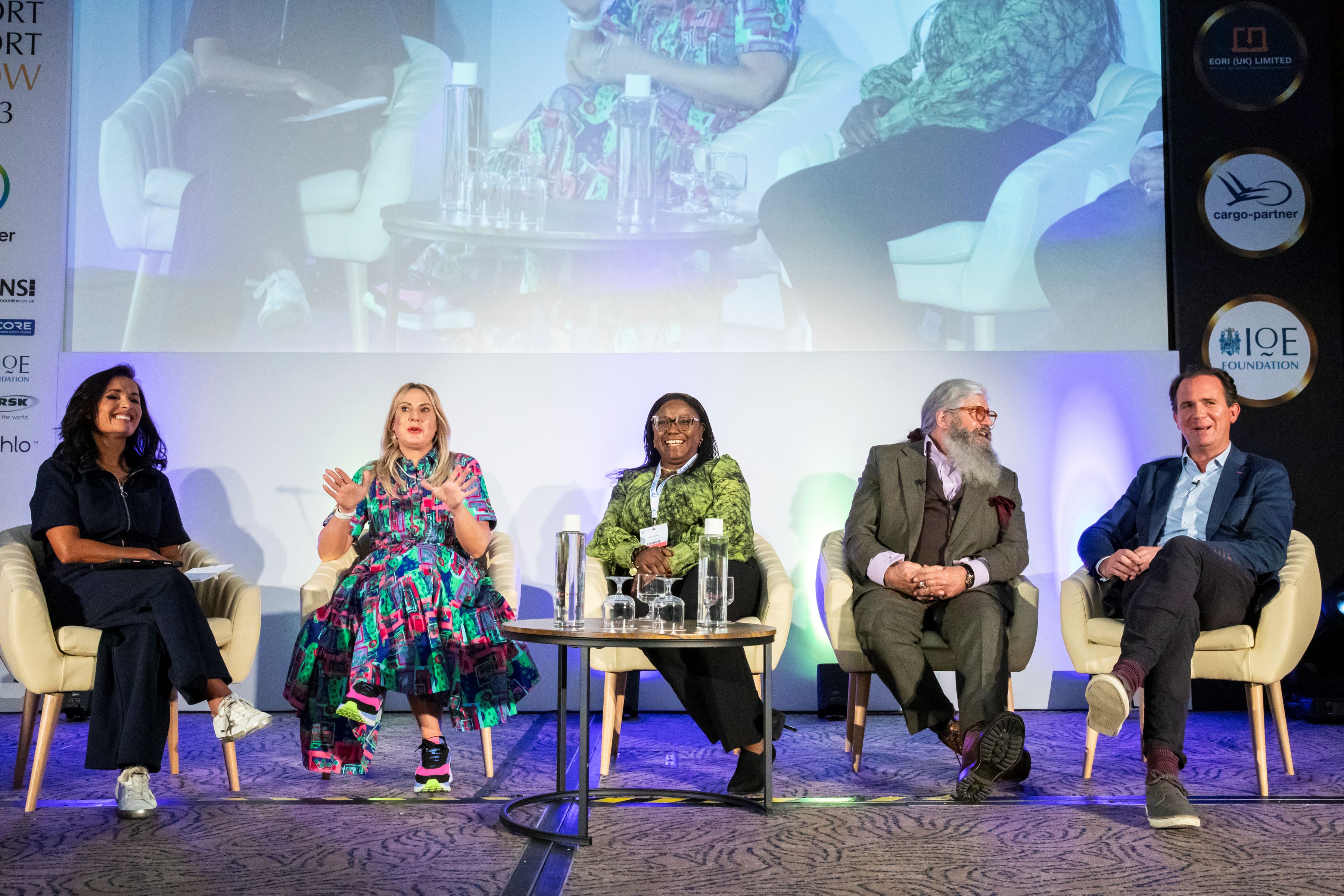
Exporting can be complex and challenging, but also exciting, rewarding and even fun. This was the key message from a panel of export champions and business leaders at the Institute of Export & International Trade’s (IOE&IT) inaugural Import Export Show.
The discussion, chaired by ITN journalist Nina Hossain, focused on how exporting had helped drive the success of businesses including premium drinks mixer company Fever-Tree, gentlemen’s grooming business Captain Fawcett, skincare firm Dr PawPaw and business
services company Enterprise Trade and Knowledge Group (ETK).
Speaking about Fever-Tree’s success, Oliver Winters, global communications director for the firm, said that the business is now the UK’s largest exporter of soft drinks and that the ambition from early on was to be global.
“The founders were very focused on the international opportunity from the start and within two years we were in 10 to 15 countries and we’ve never looked back. We have just entered our 94th country and now 70% of our revenue comes from overseas.”
Rollercoaster ride
Pauline Patterson, co-founder of Dr PawPaw described her export journey as having been a “rollercoaster” ride.
“Exporting beauty products can be very difficult because there is lots of red tape, but we also knew we wanted to export right from the beginning, because we saw the opportunities. We knew we wanted to grow that way. Now we’re in over 30 countries including
the US and China. We touch all four corners of the world.”
The export experience of Bolaji Sofoluwe, managing director of ETK Group, has been a bit different from other panellists, because the business is a services company. Having started by providing market entry and market expansion services to UK firms, she
soon realised that would-be exporters overseas could also benefit from her services.
“We didn't realise our services would be needed in other parts of the world. But a company in Ghana doesn’t know the first thing about Kenya. So we went out there and provided our services in Africa itself, because that’s where we’re focused. Since then,
we’ve done projects in 34 different countries.”
Accidental exporters
Richie Finney, founder of Captain Fawcett, puts his own export success down to a mix of luck, timing and hard work.
“I was still making my moustache wax at my kitchen table when I got a call from a Dutch distributor saying ‘we’d like to stock your product’. That was how it all started for me. And we were right at the start of the trend for facial hair, so timing obviously
matters.”
Sofoluwe agreed that quite a lot of exporters start through this accidental approach.
“Sometimes it is accidental. You get an inquiry through and think ‘let’s do it’. That’s what happened to us. And once we realised we could expand our services we started to grow. And it creates resilience.”
As to the importance of hard work, the panel agreed that getting out and visiting potential new markets plays a vital role. As Winters put it, “it’s about getting out to these countries and using your shoes”.
He gave the example of meeting bartenders on a visit to Mexico and hearing about a new trend for a drink that mixes Tequila with sparkling pink grapefruit. The company then used that intelligence and quickly developed its own sparkling pink grapefruit
drink, which is now the company’s second-biggest seller in the US.
Finney told of a recent tour of European markets – made on a motorbike – visiting ambassadors, distributors and customers. Over the course of 10 weeks, he covered 12,500 miles.
“Nothing beats actually going there and seeing people in person. People were saying ‘we’re dropping this brand that brand, but we won’t drop yours’. I went to one shop in Luxembourg where the owner said ‘we don’t stock your brand, but we will do by 7pm
tonight’. You have to get out there because your enthusiasm is infectious.”
Free trade agreements
The panel agreed that free trade agreements play a part in deciding which markets to export to. Winters explained that Fever-Tree would love to operate in India, but the tariffs in place mean it’s not feasible as “the tonic would be more expensive than
the gin”.
For Finney, just the prospect of a free trade agreement with India has been enough to persuade him to launch into that market, and he’s already doing business there, even though it’s not very profitable for the moment.
“We’re hoping at some point in the future there will be a trade deal with India. The thing is to be ahead of the game.
“I’ve spent a fortune registering all the products and everything that would go into the country now because when [the agreement] comes into force there will be a stampede. And it’s about being early. You have to take risks on occasions.”
Sofoluwe added that free trade agreements are “very difficult documents to break down, particularly to people in small businesses” without the resources of a large team.
Where markets themselves are complex or where there is a language barrier, Patterson suggested using distributors rather than going direct. She highlighted that in markets such as Korea this has worked well, but she added that going direct is better where
you can from a margin perspective, adding that “it can be scary at first, but it is also really rewarding”.
Finney summed up the mood of the panel and its attitude to exporting, when he quoted motivational writer Rory Vaden’s line: “Success isn’t owned, it’s rented and the rent is due every day.”
For these businesses at least, international trade is a key way to make sure there is enough rent to pay for the success.



